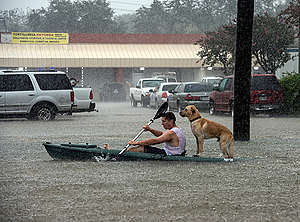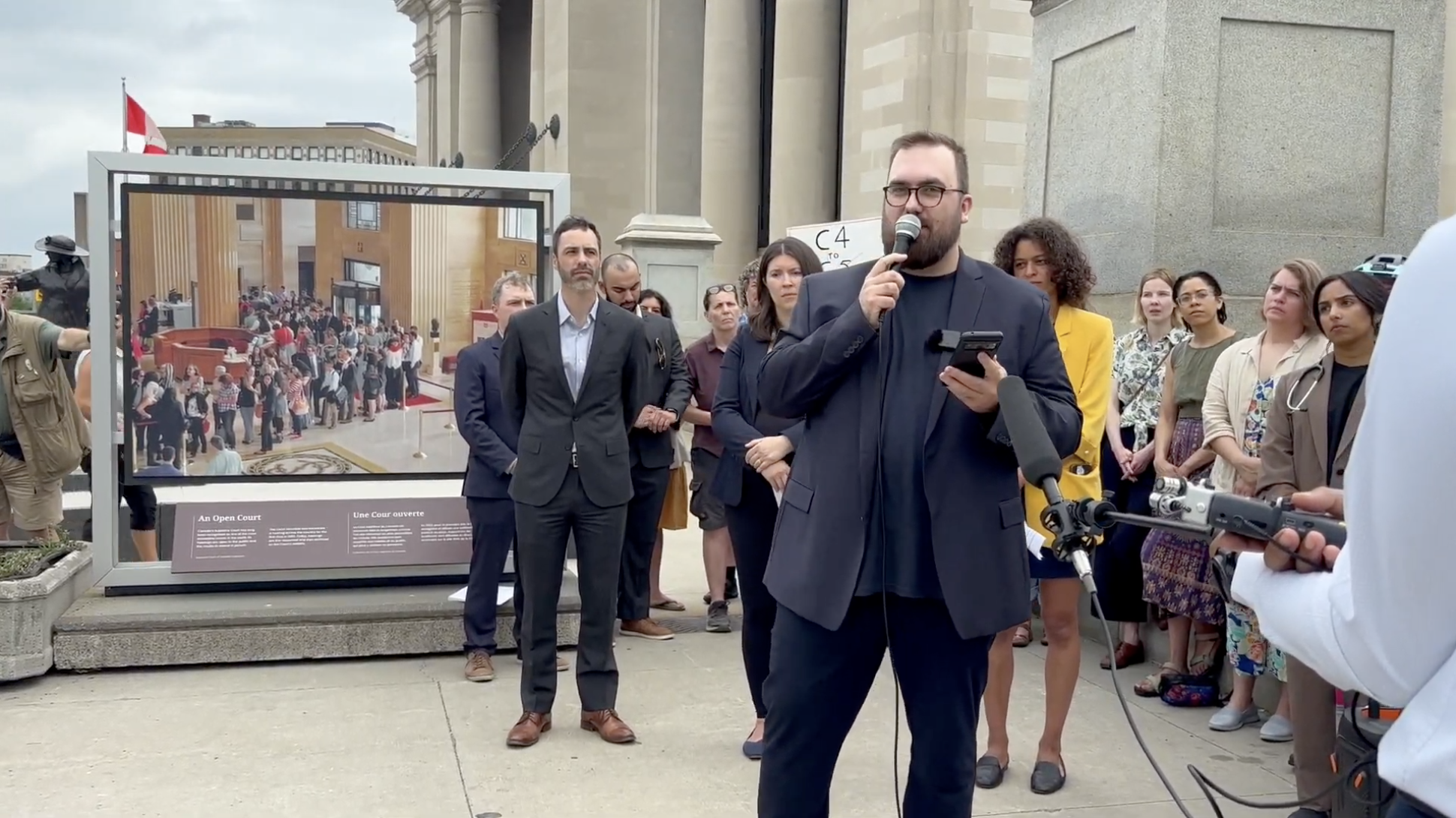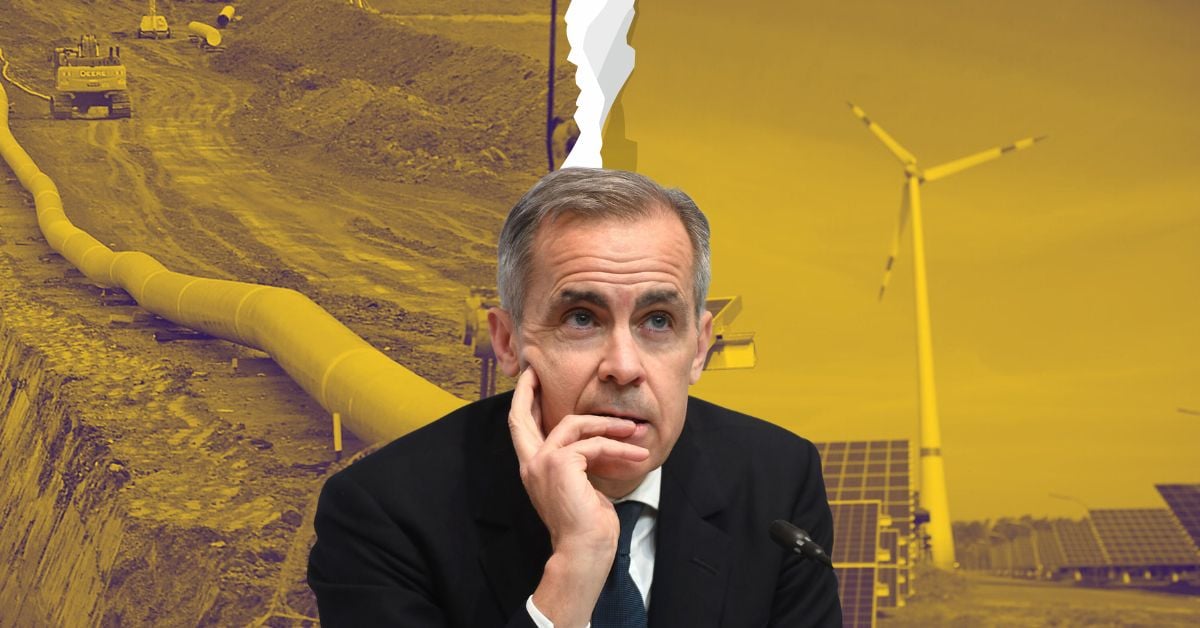Last week, the National Academy of Sciences published a report stating (according to the CBC):
“The world is at risk of entering “hothouse” conditions with average temperatures 4-5 C higher even if emissions reduction targets under a global climate deal are met, scientists say in a new study.”

All rights reserved. Credit: Paddling down a flooded highway in Houston, US during Hurricane Harvey, 2017 – the kind of extreme weather that we’re seeing more and more of. © Mannie Garcia/ Greenpeace.
Days before the report was released record temperatures were reported around the world. More than 90 people had died due to extreme heat waves in Q. More than 80 in Japan. And the Arctic circle was on fire.
As I write this, a fire, the size of Los Angeles, is burning out of control in California.
It’s hard to know what to think (or feel) when I read pronouncements like that. Part of me feels hopeless and despair about a planet so clearly out of control.
Up until recently newspaper headlines have often focussed on reporting on shortages of air conditioners due to hotter weather or overcrowded public pools rather than honing in on one of the biggest underlying causes of these extreme weather events: climate change.
But as demonstrated with this report, and among other news outlets I’ve started to notice a slight shift. More and more news outlets are connecting the dots and reporting the facts, our climate is rapidly changing and it’s not natural weather cycles causing this shift, it’s people, governments, corporations that are to blame.
After decades of knowing what is to come our governments have delayed action, accelerated the problem, and wasted away one of the most precious of things – time.
The recent New York Times Magazine feature reports, what we already know, if we had acted back then the lifting would have been smaller, the disruption less, and countless numbers of people, communities, and animals might have been saved.
Now, as fires burn around the Arctic, and temperatures soar around the world, we watch as our ‘new normal’ has become just that ‘normal.’
Some of my colleagues have said that we shouldn’t circulate this type of report because it makes one feel a little hopeless.
But after a moment of despair, I remember what a friend once told me almost a decade ago; you can’t do everything. It took me a long time to learn that lesson but it’s a valuable one.
Because after all it’s not up to me, one person, or one organization, to change the world. It’s a collective journey we are on and millions of collective actions can right this ship.
For me, and working at Greenpeace, a big part of that is trying to stand up to the companies and governments that put us in this place – the ones that endangered our collective future because they wanted money or votes – and force them to take the actions science demands and implement the solutions that lead us out of the problem not deeper into it.
When I remember that, and remember that millions of people around the world are acting, just like I am, the problems don’t seem so unbeatable and the despair doesn’t seem so all consuming.
Nelson Mandela once said, “It always seems impossible until it’s done.” I always try to remember that.
If enough of us take this despair and focus it I believe we can move mountains again.
Things you can do right now:
Climate change is a global problem that will take coordination from governments around the world, but here are a few things you can do to make a difference:
- Pressure our government to deliver on the Canada’s legally binding climate change commitments, which means not building any new fossil fuel projects that contribute more emissions and make the problem worse. One immediate way to act is to tell Prime Minister Trudeau not to buy the TransMountain tar sands pipeline. Sign the petition here.
- Speak to your MP about the importance of acting on climate change and doing more to combat this growing crisis.
- Stand up for climate refugees: people around the world – often in the world’s poorest regions – have already been displaced because of the effects of climate change. Some brilliant organisations like the Environmental Justice Foundation are working to raise their profile.
- Think about changes you can make to reduce the amount of carbon you use, like eating less meat, flying less, or switching to LED lights at home.
- Switch to a renewable energy provider (check your local provider listings) – they’re competitively priced and climate friendly or work to put some solar panels on your home, business, or community roof.
- Sign-up to participate in this global day of action to demand action on climate change. Find an event (or start one near you) today.




Discussion
this good article and i will share that to be know in my country. this planet must we care.